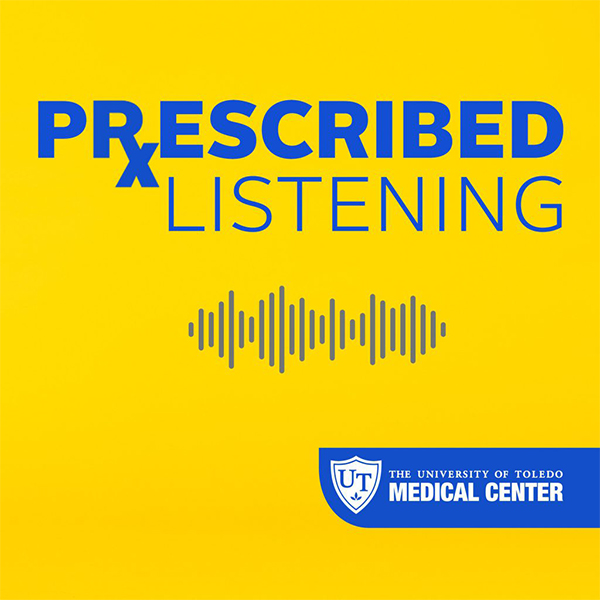Caring for a loved one with Alzheimer’s and other forms of dementia is not easy. In the latest episode of Prescribed Listening, host Tessa Lackey discusses tips for caregivers with Dr. Dionis Kononov, medical director of senior behavioral health at The University of Toledo Medical Center.
Kononov offers helpful tips for daily functioning for these patients like maintaining the home environment, checking for physical and cognitive function changes every few years and getting additional help where it may be necessary.
 He says when you are just getting started after the diagnosis has been made, it is important to investigate legal decisions — both medical and financial — but that this will all depend on an individual’s decline, and that the earlier these decisions can be made, the easier it will be later.
He says when you are just getting started after the diagnosis has been made, it is important to investigate legal decisions — both medical and financial — but that this will all depend on an individual’s decline, and that the earlier these decisions can be made, the easier it will be later.
Kononov says that the most important thing is safety first for patients with Alzheimer’s or dementia and to consider your role as caregiver as that of a spirit guide on the patient’s journey through life.
“The reality of it is if they are not able to recall what happened five minutes ago or are not able to recall the appointment times or where they were going, you’re not going to convince them otherwise,” he says. “You cannot make a part of their brain work that is no longer functioning. And so, telling them that this is the true reality, here is their reality is going to create distress, distrust, it’s going to alienate you from them.”
For caregivers themselves, among other tips for functioning in this new role, he says it is important to understand when you are at the point of burnout and to recognize that and know when you need a break.
“Typically, we find ourselves from a treatment team on the educational aspect, on the intervention aspect of needing to get involved with our caregivers for our patients, that you are burning out,” Kononov says. “You are doing everything you can for your parent, for your loved one. What about yourself? Many times, those of us in a caregiving role tend to divert all of the mental and physical resources towards the individual that we’re caring for — be it our child, be it our parent — and neglect or don’t acknowledge our own needs.”
To review this episode and the podcast’s entire library of episodes, go to the UTMC Prescribed Listening website.
Subscribe to UTMC’s Prescribed Listening podcast for the latest episodes on Apple Podcasts or Spotify.